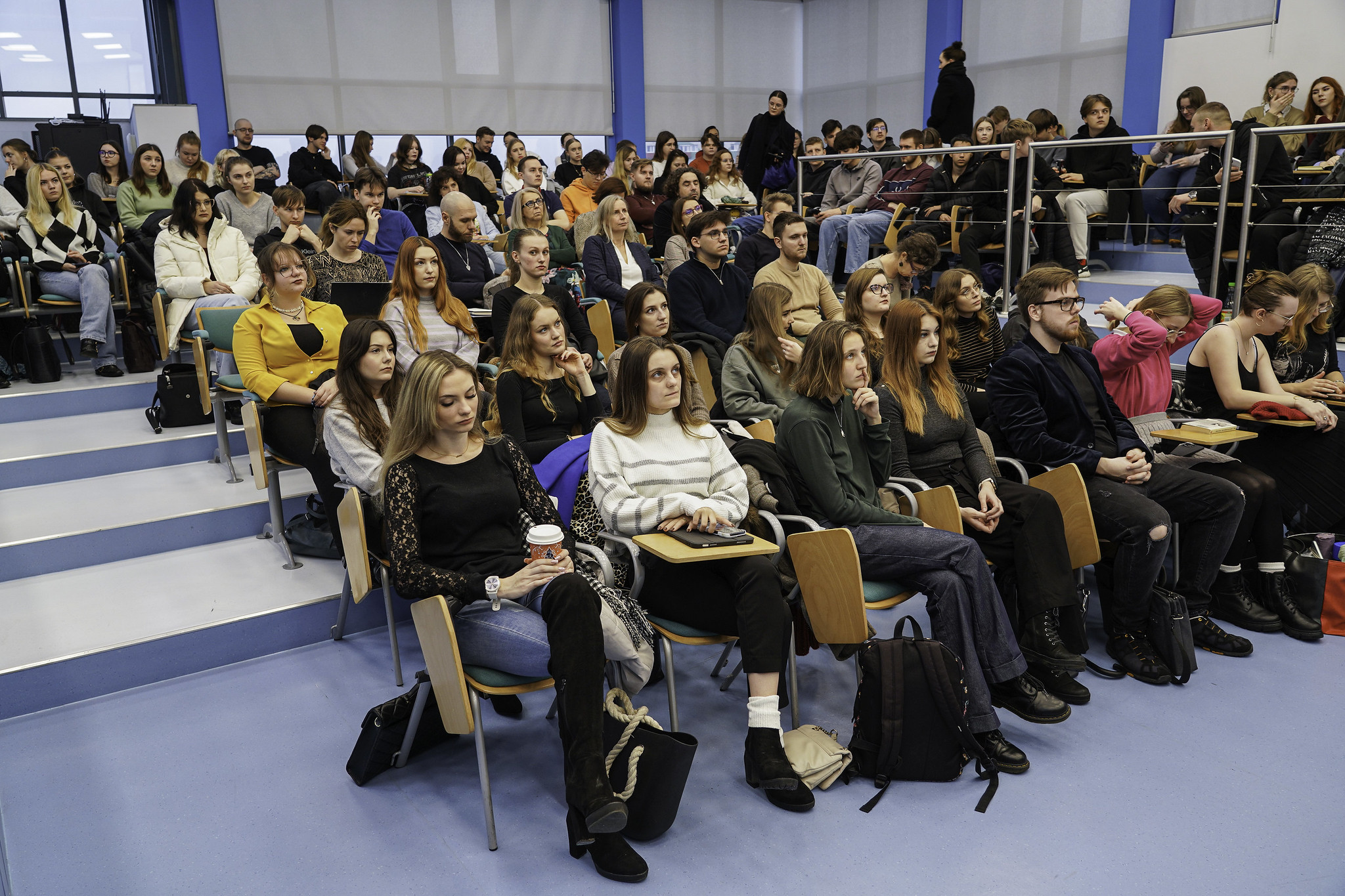
‘The importance of the gender dimension in research and social practice’ was the topic of a seminar held on 3 December 2024 in the Blue Hall of the Collegium Maius. This interdisciplinary event was co-organised by scholars representing seven of the twelve faculties of the University of Opole.
The lectures were delivered by as many as seventeen speakers: Prof. Anna Tabisz, Dr Magdalena Ozimek-Hanslik, Dr Magdalena Przysiężna-Pizarska, Dr Magdalena Piejko-Płonka, PhD, Michał Kozłowski, Prof. Katarzyna Molek-Kozakowska, Prof. Dominika Malchar-Michalska, Dr Rafał Gerymski, Grzegorz Hussak, Dr Natalia Krawczyk, Katarzyna Preuhs, Alicja Bulak, Kacper Kozdraś, Karolina Pisz, Dr Joanna Latała-Matysiak, Agata Mroczek and Dr Marzanna Pogorzelska.
‘This entire seminar is permeated with interdisciplinarity. I have invited representatives of various disciplines,’ said Dr Marzanna Pogorzelska, co-organiser of the event. ‘We have a really great diversity, because the people attending represent as many as seven faculties: Faculty of Art, Faculty of Philology, Faculty of Social Sciences, Faculty of Health Sciences, Faculty of Political Science and Social Communication, Faculty of Economics and Faculty of Natural Sciences and Technology.
The talks dealt with feminine and masculine nouns, gender in folk history, research on gender transitions and the economic effects and benefits of gender balancing. The topics of gender stereotypes, sexual violence, non-heteronormativity, transness or physiology were also addressed. The gender dimension in applying for European funding for science and innovation and gender inequalities in archaeology, art and many other fields were also among the topics.
‘The range of topics shows the relevance of the gender dimension in many different disciplines. I think we are moving in the right direction, but it is a process. We are finally changing the thinking schemes that have been with people for thousands of years. Very patriarchal and androcentric schemes,’ emphasised Dr Marzanna Pogorzelska. ‘Today we are showing how these abstract concepts can be translated into practice. Let me give the simplest example from the field of medical sciences: women and men have different symptoms of certain diseases, and we know the symptoms of a heart attack from a male perspective. They are different in women, so this approach is dangerous.
The event was organised by: Faculty of Philology, Institute of Linguistics, Faculty Proxy for Equality and Diversity and the Student Research Circle ‘Onoma’. It was one of the items included in the University of Opole’s gender equality plan, and the attendance at the seminar showed that it was an appropriate and necessary initiative. The audience filled the Blue Hall almost to capacity – there were mostly students as well as academics.